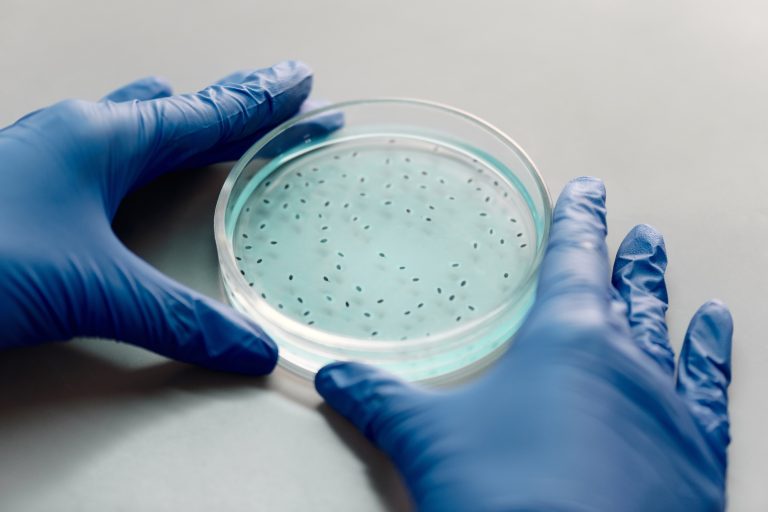
Understanding the inner workings of our bodies is a complex endeavor, and the gut microbiome test is a crucial piece of this puzzle. This test examines the community of trillions of microorganisms that inhabit our digestive tracts and play a critical role in maintaining our health and wellbeing. In recent years, the popularity of gut health testing has surged as people seek to gain insights into their health and ways to improve it.We will explore different types of tests, explain how to interpret the results, and provide resources for learning more about microbiome testing.
What is the microbiome?
Our digestive tracts are inhabited by a diverse and intricate ecosystem of bacteria, fungi, and viruses known as the gut microbiome. Each person’s microbiome is unique, as it is composed of a distinct combination of microorganisms. Although the precise makeup of the microbiome is not yet fully comprehended, it is widely recognized to be a crucial player in the proper functioning of the digestive and immune systems.
Research suggests that the human gut microbiome contains approximately 1000 distinct species of bacteria. The majority of these bacteria are beneficial, as they facilitate digestion, provide disease protection, and synthesize essential nutrients and vitamins that contribute to your overall health.
The importance of the microbiome
The microbiome is essential for maintaining a healthy balance in the body. It helps to break down food, absorb nutrients, and defend against pathogens. Additionally, it is thought to play a role in regulating the immune system, metabolism, and even mental health.
Research has shown that imbalances in the microbiome can lead to a range of health issues, including digestive disorders, skin conditions, and even chronic diseases. Therefore, understanding the composition of the microbiome and how it can be optimized is essential for overall wellbeing.
What is a microbiome test?
A gut microbiome test is a form of DNA testing that examines the composition of microorganisms present in the gut. The test entails obtaining a microbiome sample, such as a stool sample, and sequencing the DNA of the microorganisms present within.
The findings of a microbiome test can offer valuable information about the health of the microbiome and any imbalances that may be contributing to health problems. This can be particularly helpful in recognizing and addressing any potential issues, as well as optimizing the microbiome for better health. Microbiome testing has various names, such as biome testing, gut bacteria testing, comprehensive stool analysis, and parasitology testing. Although they are all similar, there are differences among them with each company offering slightly different biomarkers. Some will include markers for inflammation and some will include markers for leaky gut.
Testing for gut health and microbiome composition can provide numerous benefits for health and wellbeing. It has the potential to identify any imbalances in the microbiome that may be contributing to health problems, including digestive disorders or skin conditions. Moreover, it can offer insight into the various types of bacteria, yeast, and parasites present within the microbiome and their interactions with one another, thus helping to optimize the microbiome for better health.
Depending on one’s symptoms, it is essential to seek advice from your functional medicine practitioner on which test is most suitable.
How to optimize your microbiome
o enhance one’s microbiome for improved health, several measures can be implemented. These involve consuming a well-balanced diet, refraining from processed foods, and ensuring adequate fiber intake. Along with this, incorporating probiotics and prebiotics can aid in the proliferation of helpful bacteria in the gut and decrease inflammation. Prebiotics are the crucial intervention needed rather than probiotics. Lastly, reducing stress levels and obtaining sufficient sleep can aid in decreasing the quantities of detrimental bacteria in the microbiome with many studies showing the correlation.
Microbiome Testing Options
- Doctors Data Comprehensive Stool Analysis x3 (Culture, PCR ) 350 Euro
- Doctors Data Comprehensive Stool Analysis x3 (Culture, PCR + Parasitology) 430 Euro
- GI 360 440 Euro
- GI Effects by Genova Diagnostics 440 Euro
- GI Map 380 Euro
- GI EcologiX by Invivo laboratories 440 Euro
Understanding microbiome testing and its overall impact
It is important to remember that the composition of the microbiome can be influenced by a number of factors, including lifestyle, diet, and environment. Therefore, it is important to take a holistic approach to optimize the microbiome, rather than relying solely on the results of a microbiome test as its not a cure all and needs to be taken in context along with other factors.
Its a very good starting point but its only one piece of the puzzle and for more complex cases, you should always consult with a functional medicine practitioner who are trained to understand the nuances that are involved.
.
Interpreting the results of a microbiome test
Deciphering the outcomes of a microbiome test can be challenging and necessitates assistance from a functional medicine practitioner. In general, it is crucial to identify any imbalances in the microbiome, such as the overgrowth of particular bacterial types especially the pathoegenic ones. Furthermore, one should look for indications of inflammation or other indications of gut health. Purchasing tests that provide a general overview of the results is not recommended since a comprehensive evaluation of an individual’s symptoms, history, diet, and lifestyle is necessary, which should be done in collaboration with your functional medicine practitioner.
How we can help?
If you are experiencing any gut health issues or you have symptoms of fatigue, mental health issues or unexplained symptoms, reach out to us at the Dublin Center for Functional Medicine and we would be happy to schedule a 15 minute free discovery call to talk about options in relation to your health challenges.
